Today much of the world's population lives safer, more comfortable, healthier, longer, more productive lives than ever before. And yet, around half of the global population currently lacks access to enough electricity, and 1.2bn people have no access at all. #IPCC 1/n 
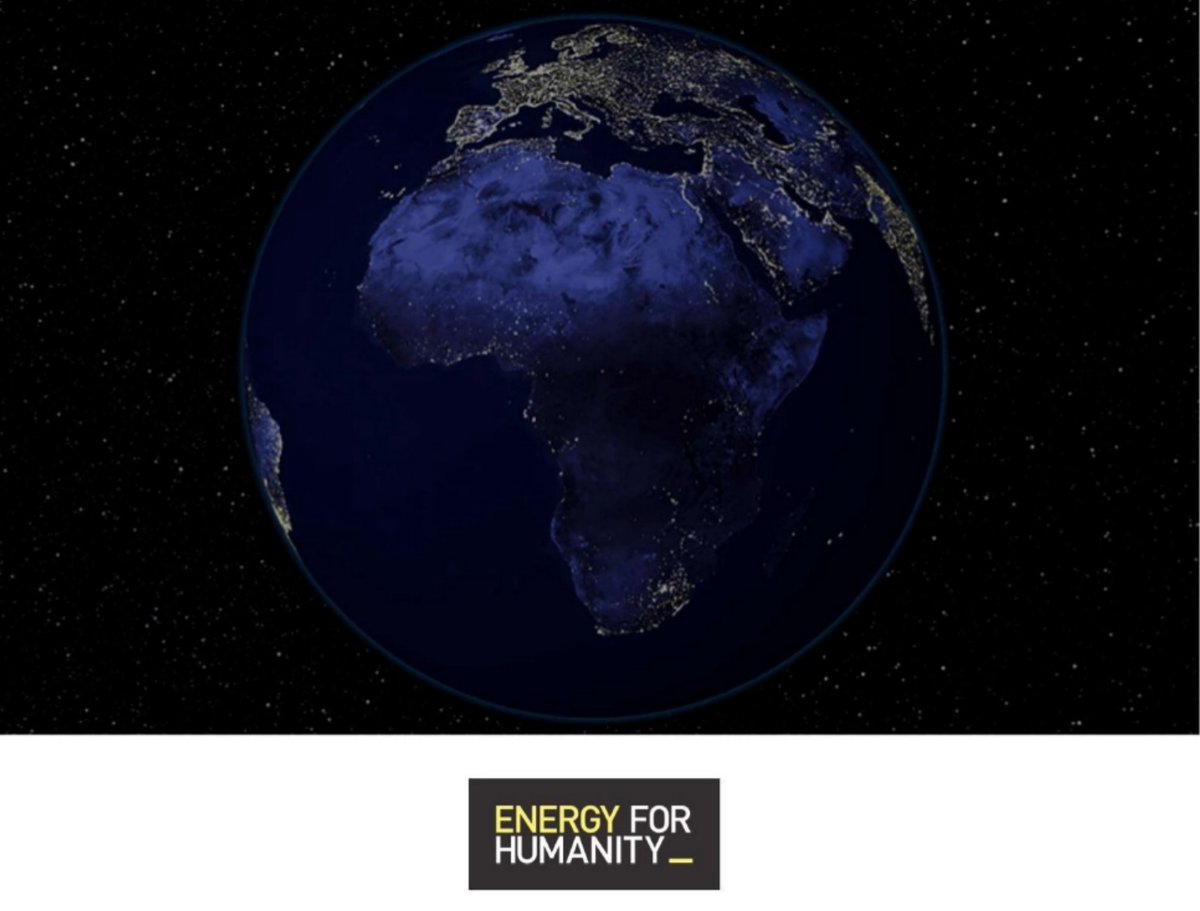
Global electricity access is rising, which is improving the lives of millions. But this means our decarbonisation challenge is even greater, since we not only have to replace our entire fossil fuel infrastructure, but probably double it to meet rising global energy demand. #IPCC 
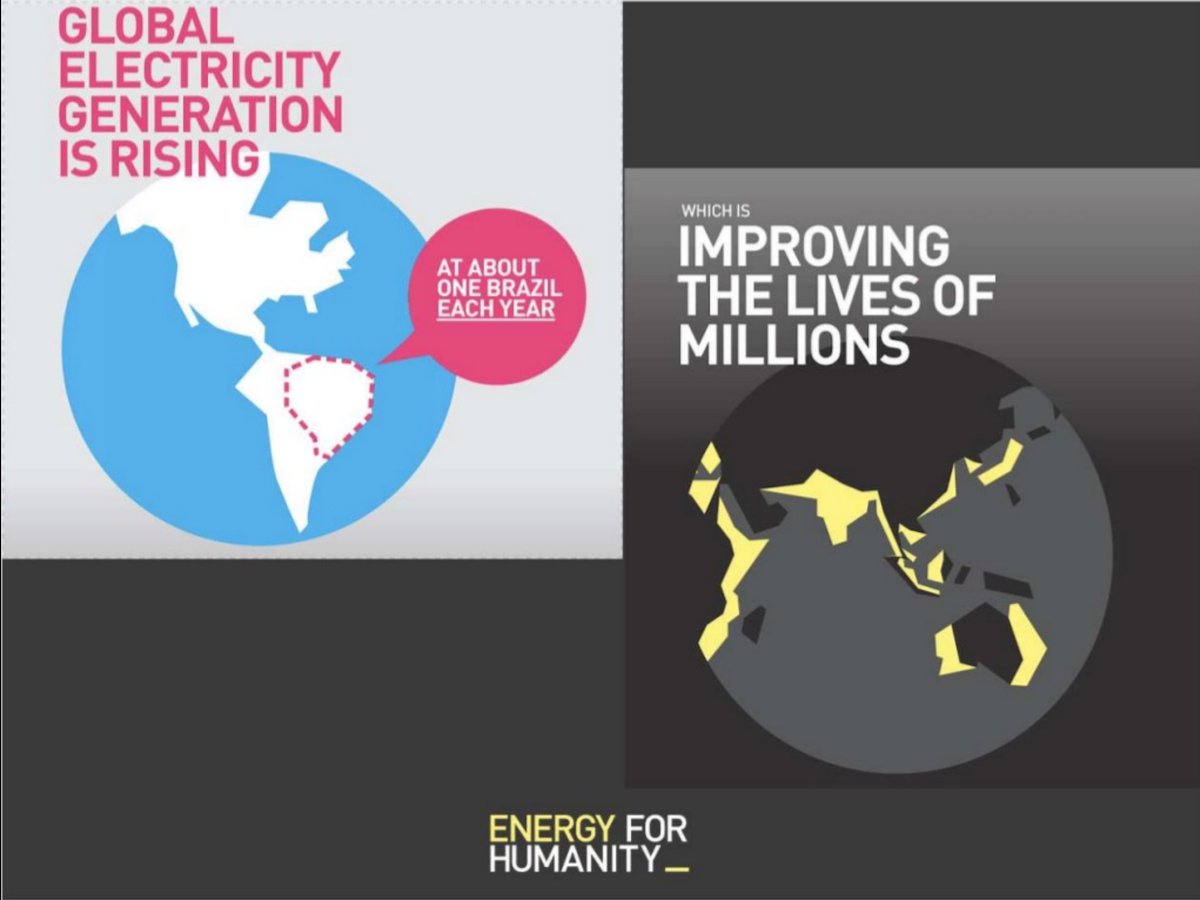
Despite 25yrs of successfully building political and public support for action on #climatechange we have not made a dent in the upward trajectory of emissions, and fossil fuels still dominate the global #energy mix. #IPCC 
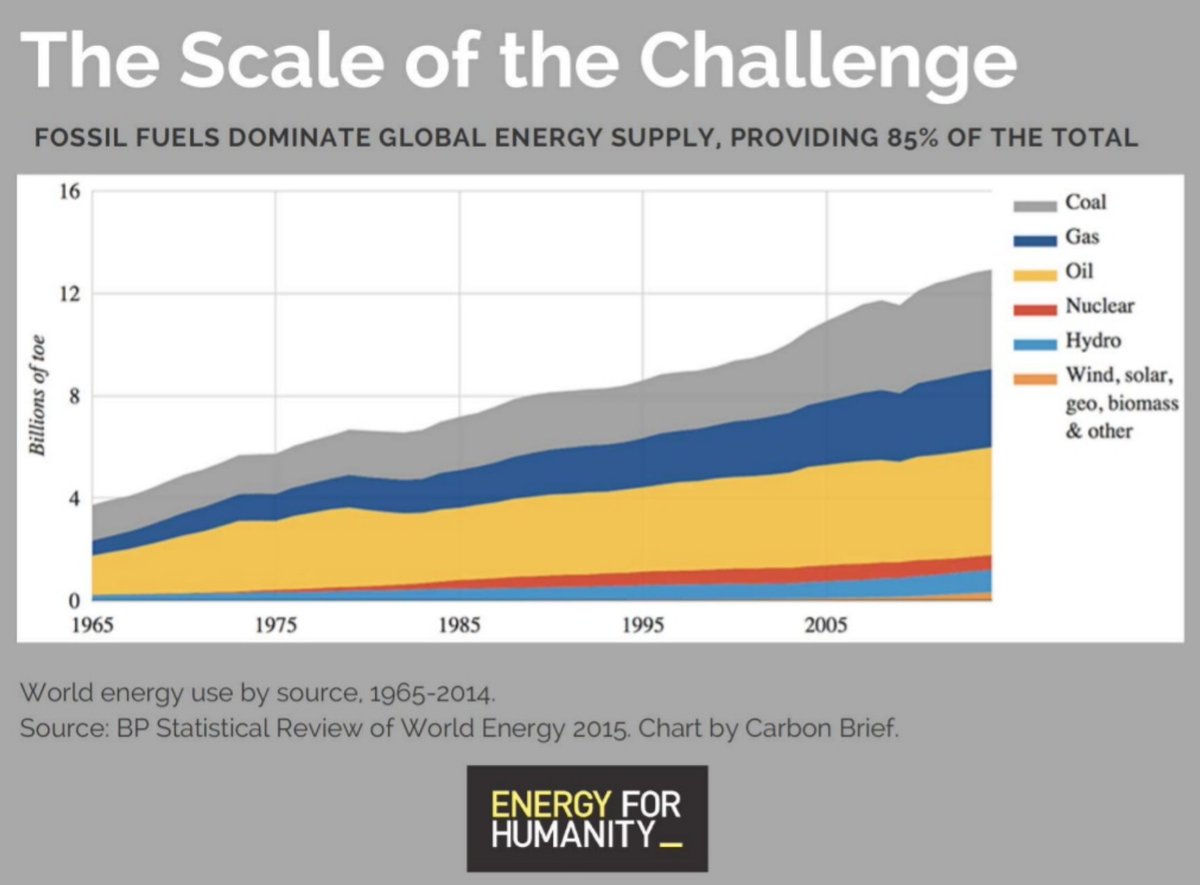
This has to change. By 2050 we need to reduce CO2 emissions to net zero globally around 2050, or face severe, irreversible consequences. #IPCC 
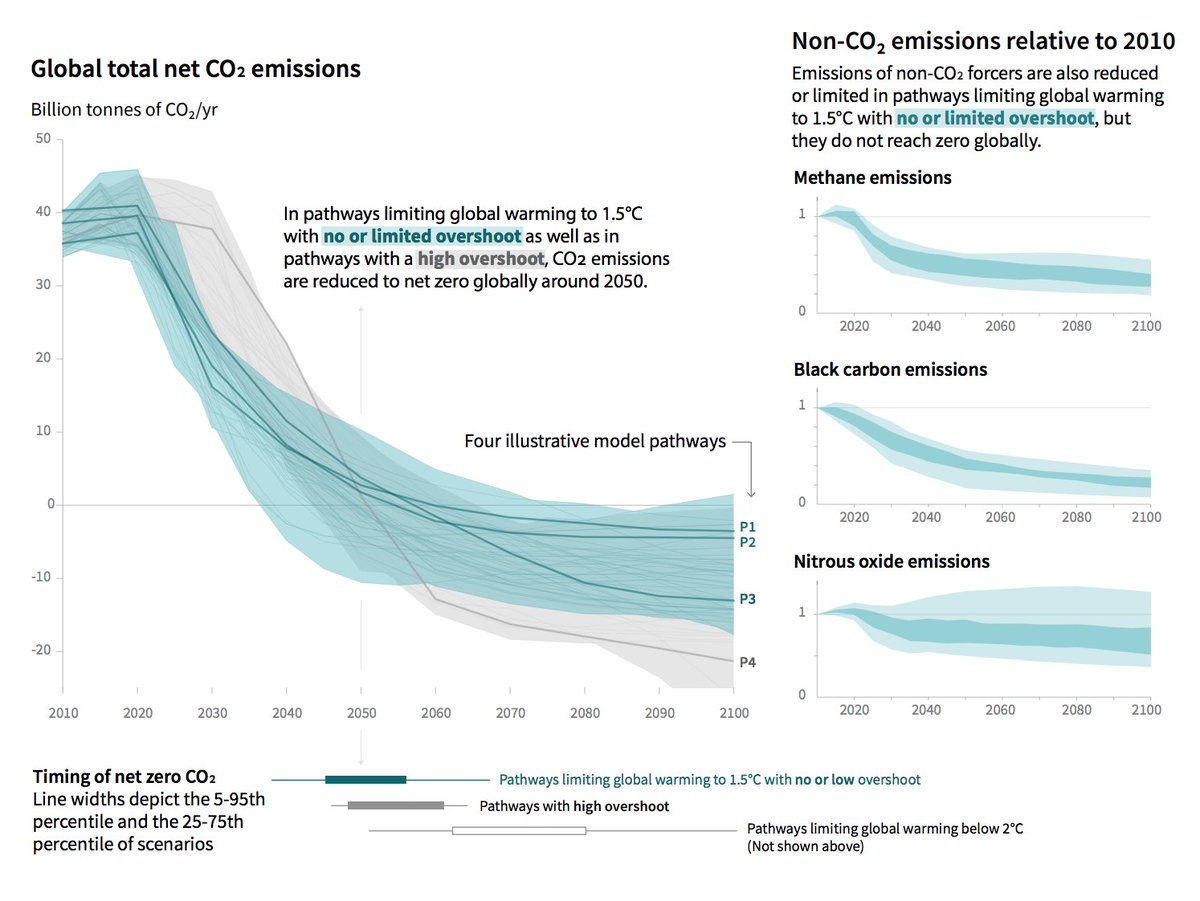
By 2050, my daughter will be the age that I am now. This throws the net zero deadline into sharp relief. I want to be able to look my daughter in the eye and tell her there was no solution that I did not consider in the battle against climate change. #IPCC 

Because it's bad people. Already. Already ice shelves the size of Manhattan Island are breaking away from the crumbling coastal shelf as the air and sea warm. 

Other likely effects include more frequent extreme weather events such as heat waves, droughts, heavy rainfall with floods, ocean acidification and potentially a catastrophic mass species extinction by the end of the century. #IPCCReport 

Effects on humans include the threat to food security from decreasing crop yields, forced migration, conflict, and the abandonment of populated areas due to rising sea levels. #IPCCReport 
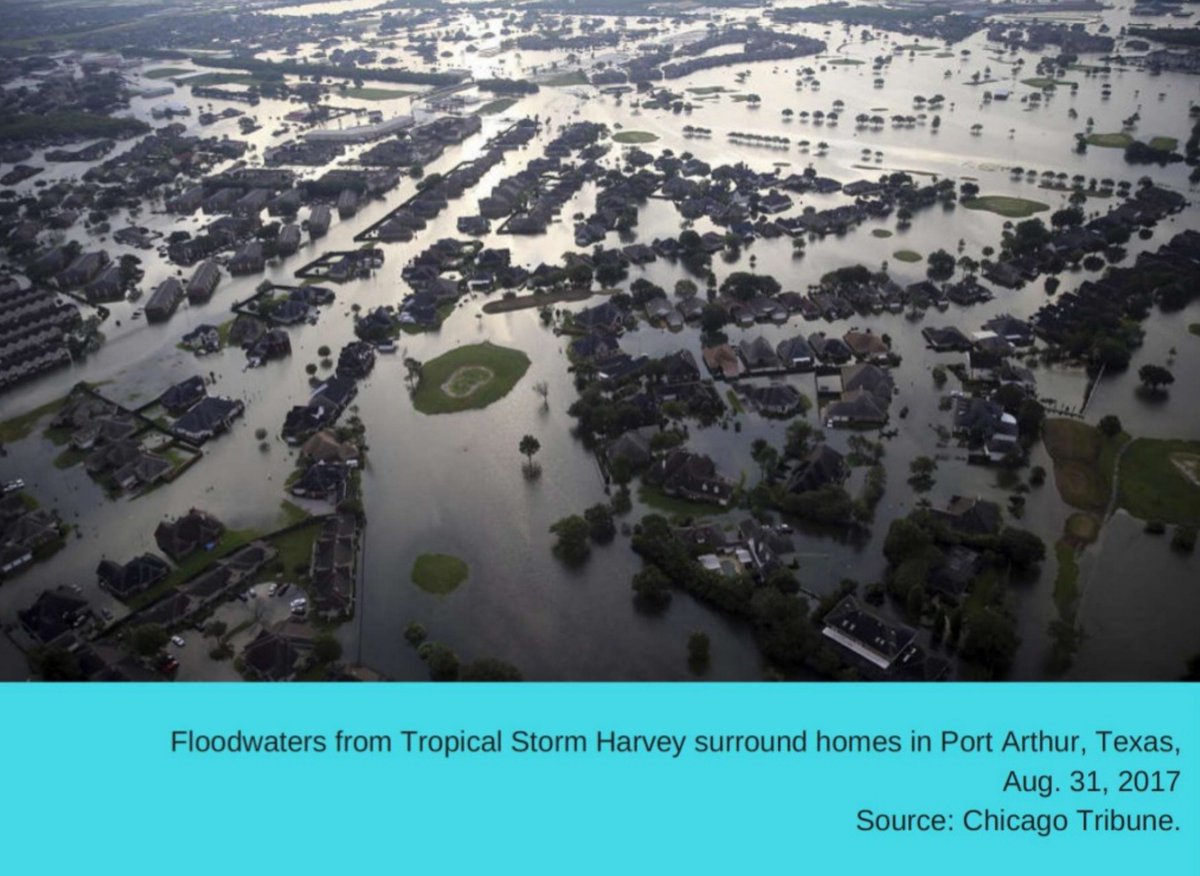
The scale and complexity of global warming, and it’s causes and impacts are so large, we don’t really have the mental apparatus to respond to an abstract problem like climate change. It's not a threat we are evolved to respond to, like a tiger coming to our village. #IPCC 

Climate is a cumulative problem. We cannot wait until it’s got bad, say ok it’s bad now let’s solve it. Then it will be too late. Because the climate system has a large inertia and effects will persist for not only decades or centuries, but for thousands of years to come. #IPCC 
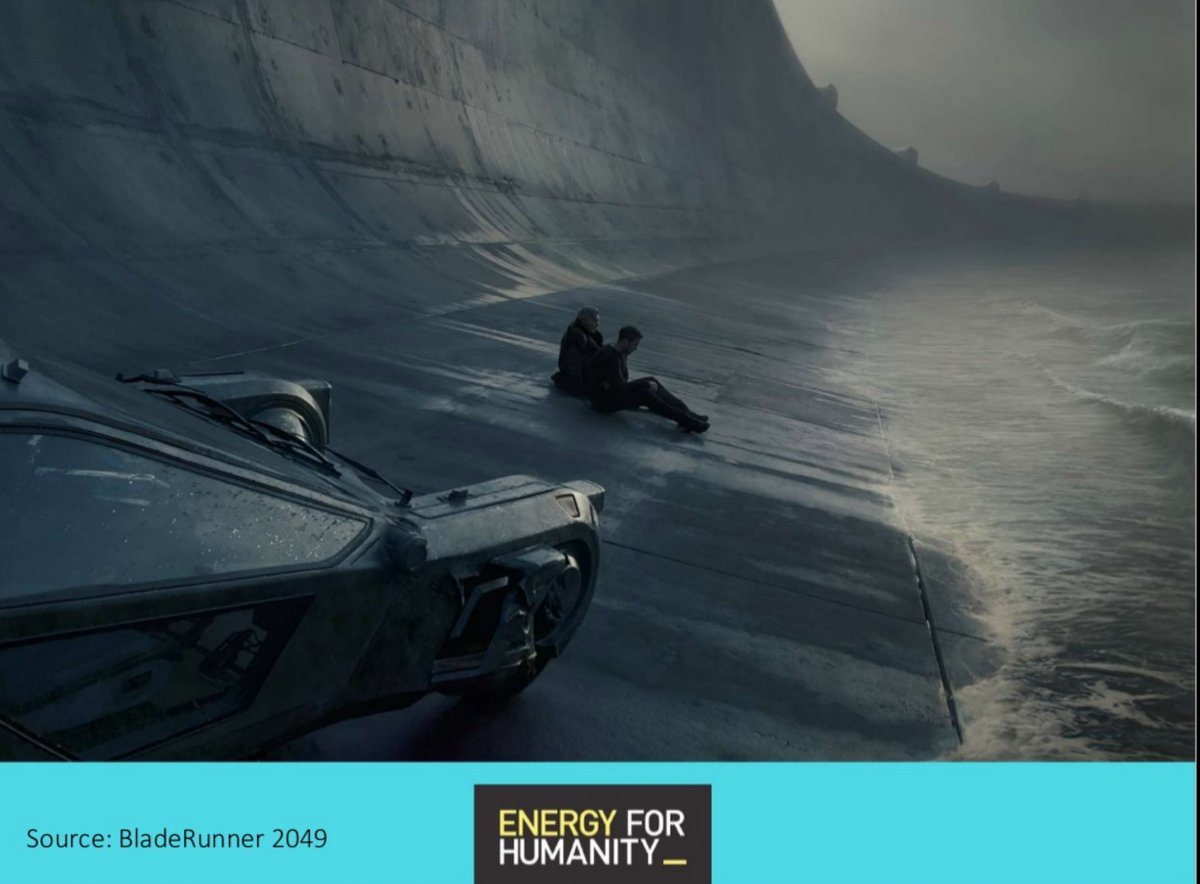
However, as the late, great Prof Sir David MacKay said: "the climate problem is mostly an energy problem". Solving climate change can be boiled down to a simple two step strategy: Clean up electricity generation, and then electrify everything (as efficiently as possible) #IPCC 
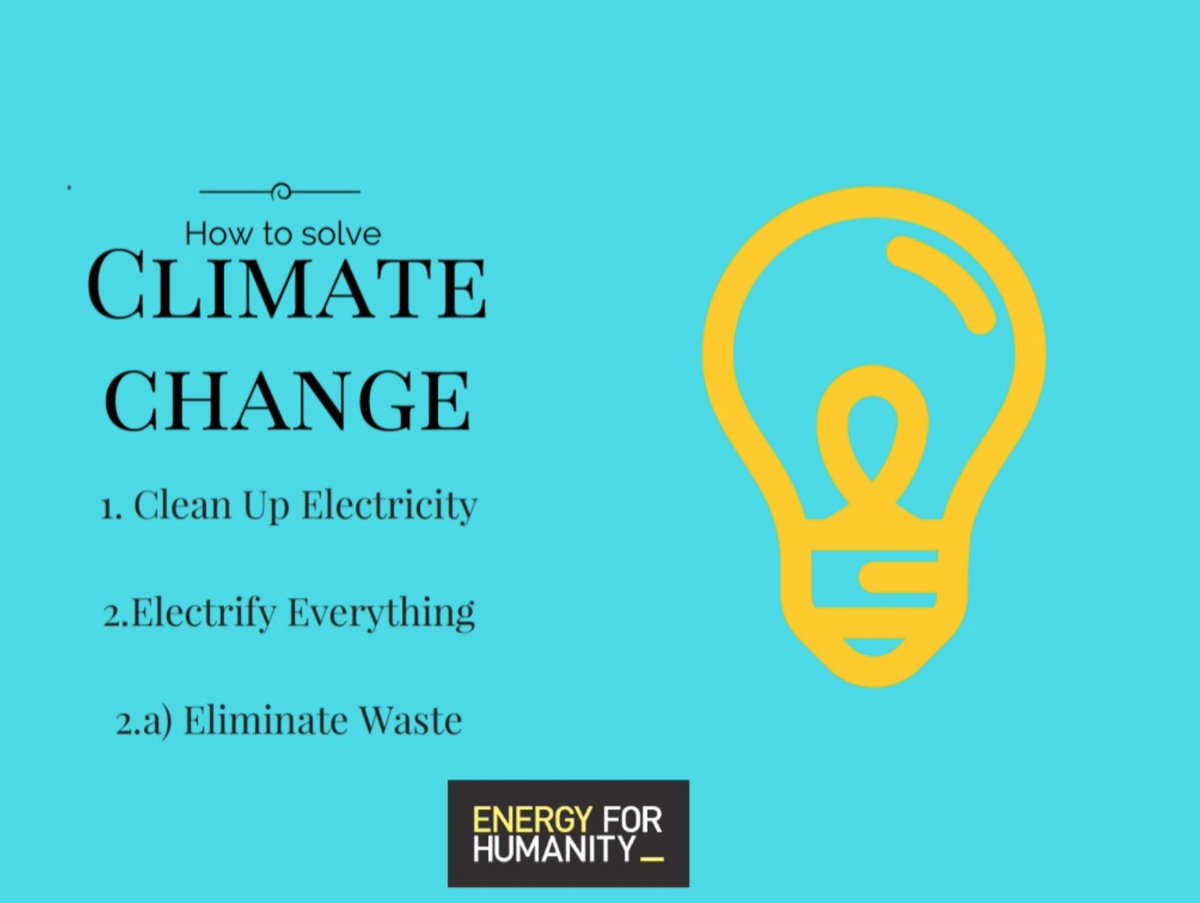
All credible studies have concluded that to have a serious chance of (1.5C) success, we need all the low-carbon solutions we have available to us and, given the scale and urgency, should be pursuing the fastest, most cost effective most feasible pathways to decarbonise. #IPCC
Our Climate Leadership report published at COP 23 with @tmrowco showed those countries in Europe who are climate leaders have the lowest carbon intensity. They are shown in bright green here on the map. They achieved this largely through a combination of #nuclear and #renewables. 
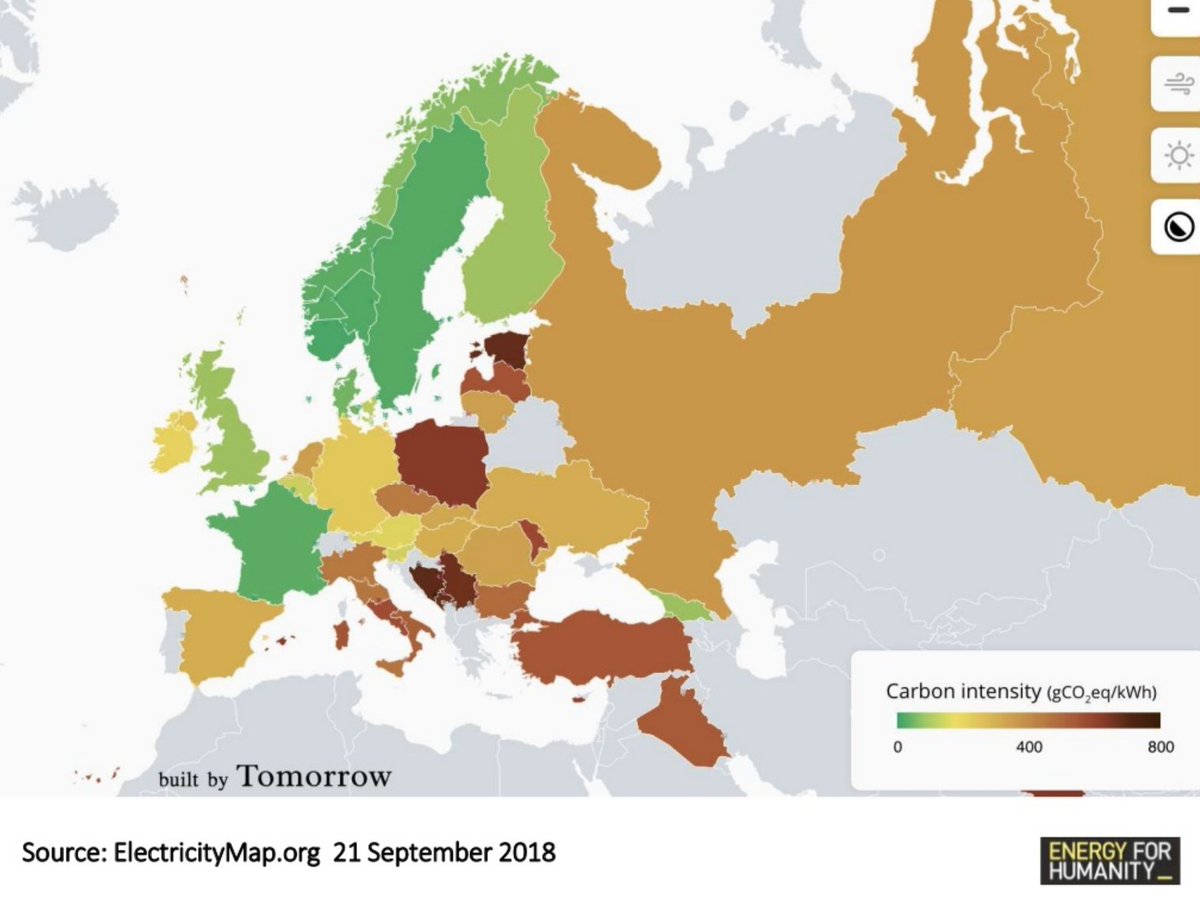
In 5 years (2010-15) U.K. achieved the largest overall reduction in carbon emissions in Europe thanks to a combination of nuclear, renewables, and gas to replace #coal. By contrast, Germany proves that it is not possible to exit coal and nuclear at the same time. #IPCC 

Our study demonstrated that there is no correlation between high installed capacity of renewables and low carbon intensity. Overall carbon intensity performance of the whole system is what counts – not individual technologies. Carbon intensity, not installed capacity. #IPCC 
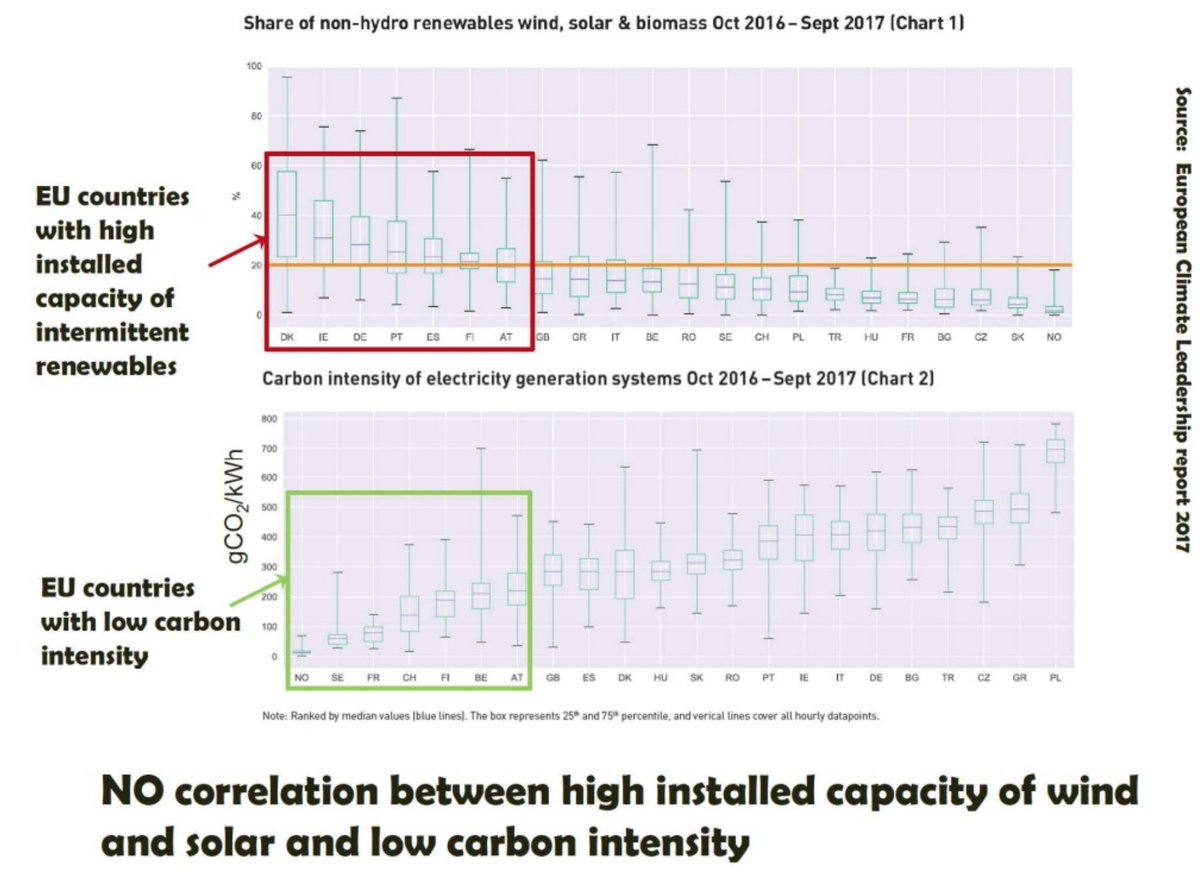
So, an energy system running a mix of nuclear and renewables performs well on reliability, affordability and decarbonisation. So far so good. But nuclear keeps being counted out because it is too expensive and slow. Right? #IPCC
Right. Recent experience in US and Europe has been expensive and slow. So how are nuclear projects being built elsewhere today for 50 - 80% lower cost?
We investigated this question in our recent Study on Nuclear Cost Drivers, commissioned by @the_ETI . eti.co.uk/news/cost-driv…
We investigated this question in our recent Study on Nuclear Cost Drivers, commissioned by @the_ETI . eti.co.uk/news/cost-driv…
We found that the price gap – seen here btw EU/US & Rest of World is due to best in class industrial practice, labour productivity and a strategy to build the same design repeatedly, while maximizing learning between units.
Nuclear CAN be expensive, but it does not have to be.
Nuclear CAN be expensive, but it does not have to be.

We have built out zero carbon infrastructure at scale in EU/US before too.We have decarbonised modern electricity grids – supporting economic growth and maintaining reliability. By learning from the example set today especially by colleagues in China & Korea. We can do it again. 

We can also learn from the success of the offshore wind industry: collaboration; cost and risk sharing between Catapults; and determination from supply chains and developers will be critical: to tackle construction delay; cost over-runs; slow build rate; and high financing costs.
What is needed is not so much technical innovation, but industrial transformation; coupled with a laser-like focus on accelerating commercialisation and deployment at scale for multiple applications beyond the power sector including high temperature heat for industrial processes. 

Beyond the power sector, we need decarbonisation across transport, heat, buildings, industry and other sectors. Whether high temperature heat, or the manufacture of synthetic fuels, these are grand challenges for which we need vision and leadership. #IPCC 
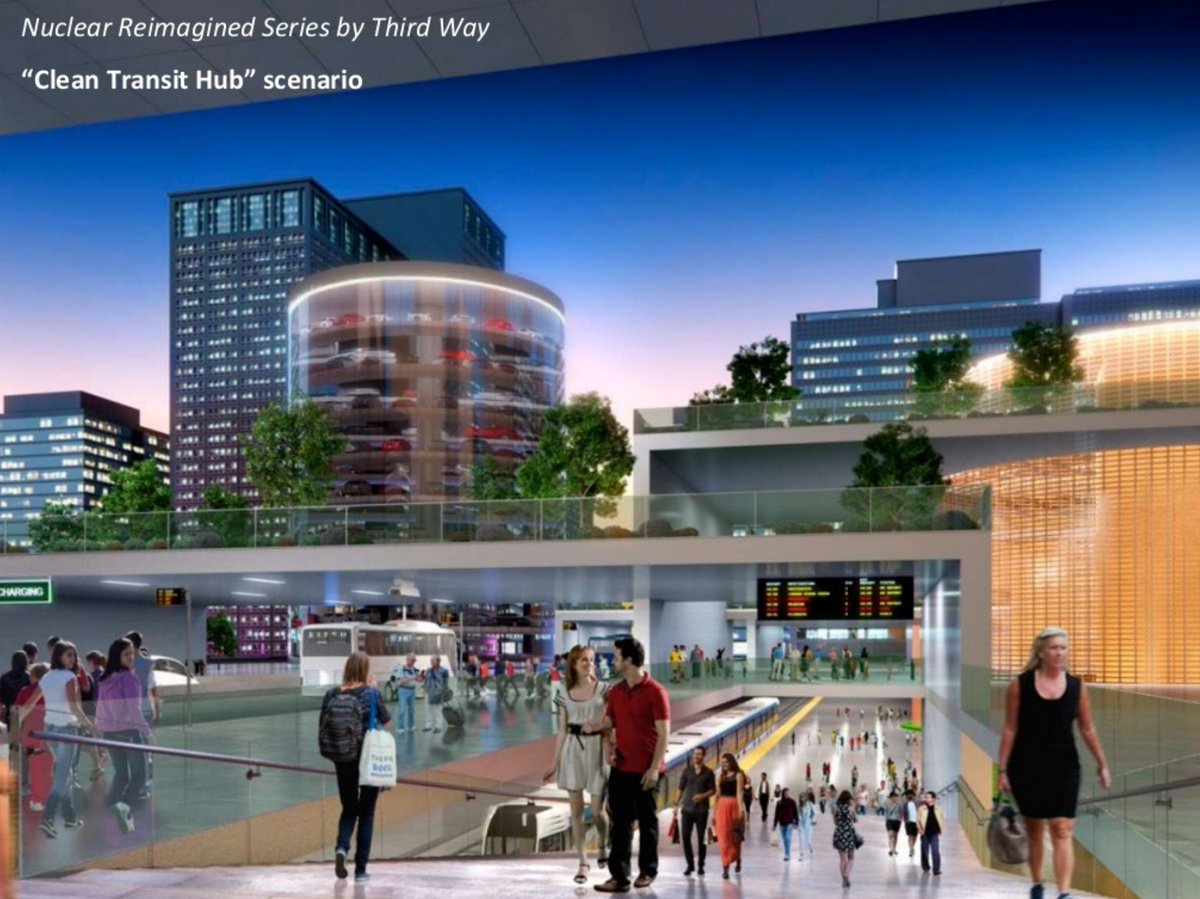
By 2050, even if we manage to stem the worst effects of climate, my daughter will be part of a larger global population more exposed to extreme weather and frequent natural disasters. Resilient infrastructure will be needed that is more versatile, scalable, flexible & competitive 

We are at a watershed moment in protecting Earth’s climate. Our response to climate change today will have far-reaching implications for all of our children. We must choose our path wisely if we are to succeed globally in making a rapid and meaningful transition from fossil fuels 

• • •
Missing some Tweet in this thread? You can try to
force a refresh





